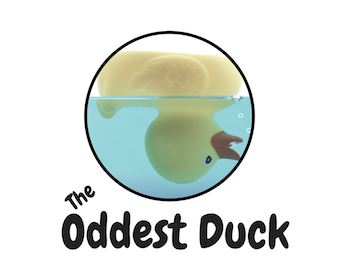This is the first in a series of blogs on Autism and Aspergers. I’m writing these from the perspective of someone with Asperger’s, and not as an expert.
I was in my thirties before I heard the word Asperger’s. A few months later, I was certain it accurately described me. You might ask — what does one feel like, making this discovery so late in life?
One word: relief.
Imagine a child who comes home from school crying. “Mom, I’ve tried so hard, but I can’t walk like the other kids. I’m always last when we race. I feel so stupid because I just can’t figure it out.” Mom pats the child on the head and says, “Honey, it’s because you only have one foot.”
For years, I’d always felt guilty about who I was. Society favors the extroverted, the socially aware, the emotionally open. I was none of these. When I opened my mouth, what came out was often immature, or inappropriate for the situation. Constantly nervous, sometimes frustrated, and often lonely, my chief defense mechanism was trying to not stand out.
Worst of all — I thought it was my fault. I should be more athletic and outgoing. I should know how to talk to people, how to express myself, how to make people like me. Every once in a while I’d build up my nerve and reach out; and inevitably, fail horribly.
Discovering there were others like me — and physiological reasons for my struggles — was freeing in a way that’s difficult to describe. Rather than try to be something I couldn’t be, I learned to be confident in who I am. Even in those things where I still have trouble.
Viewed without the lens of autism, the behavior of those with ASD (autism spectrum disorder) are often interpreted as rudeness, insensitivity, lack of empathy or even sociopathy. It’s hard to blame anybody for feeling that way. We have a tendency to be direct. Abrupt. Saying things in ways that don’t take the listener’s feelings into account. Speaking single-mindedly (and endlessly) on subjects that fascinate us. Clingy or even stalker-ish towards friends or romantic interests. Seeming to have no notice or concern when we make others uncomfortable.
However, behind the odd behavior lurk solid reasons for being that way. The autistic brain works differently than its neurotypical (NT) counterpart. From the way we receive sensual input to how our mind processes it, we experience life in a way unique from the majority of humanity’s bell curve. Things that are natural, or at least simple, for a normal person, can be utterly confusing to us.
Human interaction is essentially a game; its rules written not only in words but body language, tone of voice and facial expressions. To those with ASD, it’s like learning how to play a complex board game when the instructions are in some unknown tongue. When younger, I had a vague sense that rules existed, and enough understanding of people’s reactions to know when I’d broken one. I’d move my game piece, get told how I’d messed up, and have no idea why.
Back in the 70’s and 80’s, autism was hardly a common term, and even Asperger’s was unfamiliar to many professionals. There was little choice than to deal with us as if we were normal; meaning humiliation, punishment or worse. Today things are blessedly different; you can get buried in books on the subject, and programs exist in many schools and communities to help those with ASD grow into confident, independent adults.
Unfortunately, the vast majority of assistance related to autism is geared for families and caregivers. Imagine if this was the case for other social issues. Depression. Anxiety. Homosexuality Gender issues. Alcoholism. Mental health. If you focus on the affected, the afflicted become a problem. A disease to be cured. Or a leper to be cast out.
Those with ASD aren’t (necessarily) lesser-abled, but differently-abled. High-functioning individuals can lead productive, or even exceptional, lives. Those with more severe issues can as well. If we take the time to figure out how to speak to them. And more importantly, how to listen.
Simon Baron-Cohen, one of the world’s premiere autism researchers, said this after discovering two-thirds of the patients in their clinic had at least considered suicide, and a third had made an attempt:
“To my mind, this is nothing to do with autism or Asperger syndrome. These are secondary mental-health problems. You came into the world with autism, and the way the world reacted, or didn’t react, to you has led to a second problem, which is depression. And that’s preventable.”
The way society treats people has a huge role in determining who they tend to become. If we treat autistics like diseases, they’ll live like the terminally ill. If we treat them like social pariahs, they’ll become either isolated or sociopathic.
If we treat autistics like human beings worthy of time, effort and expense, they’ll blossom. And humanity itself will be blessed by the emergence of their unique minds.


1 Comment
Wrapping Up: Making a Difference – The Oddest Duck
Jun 12, 2017